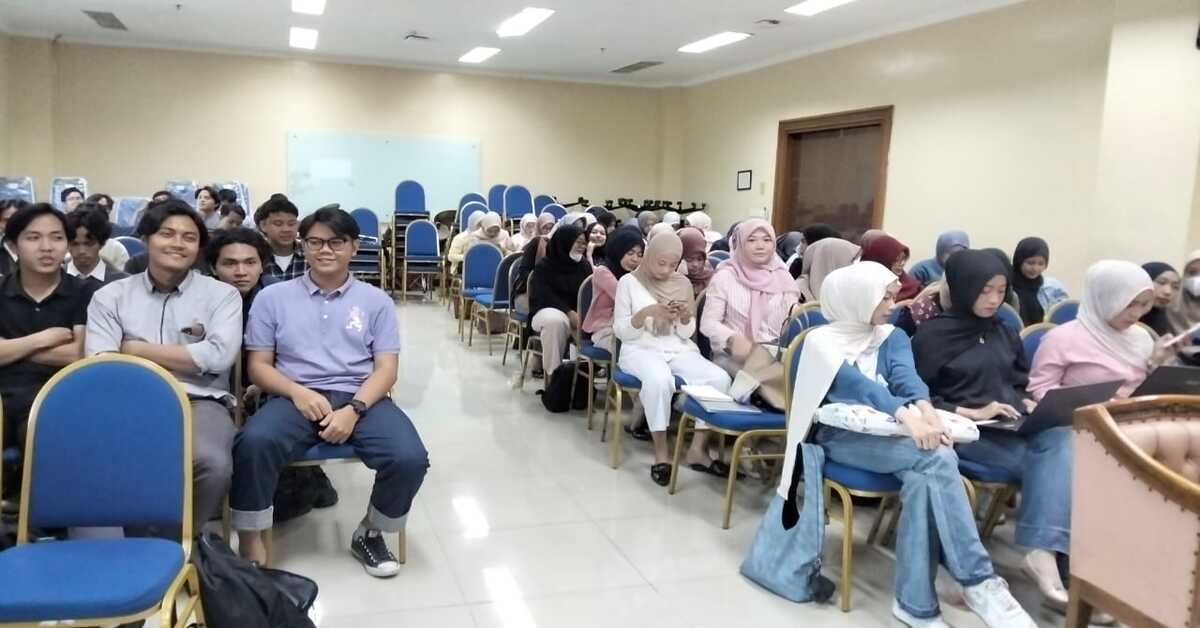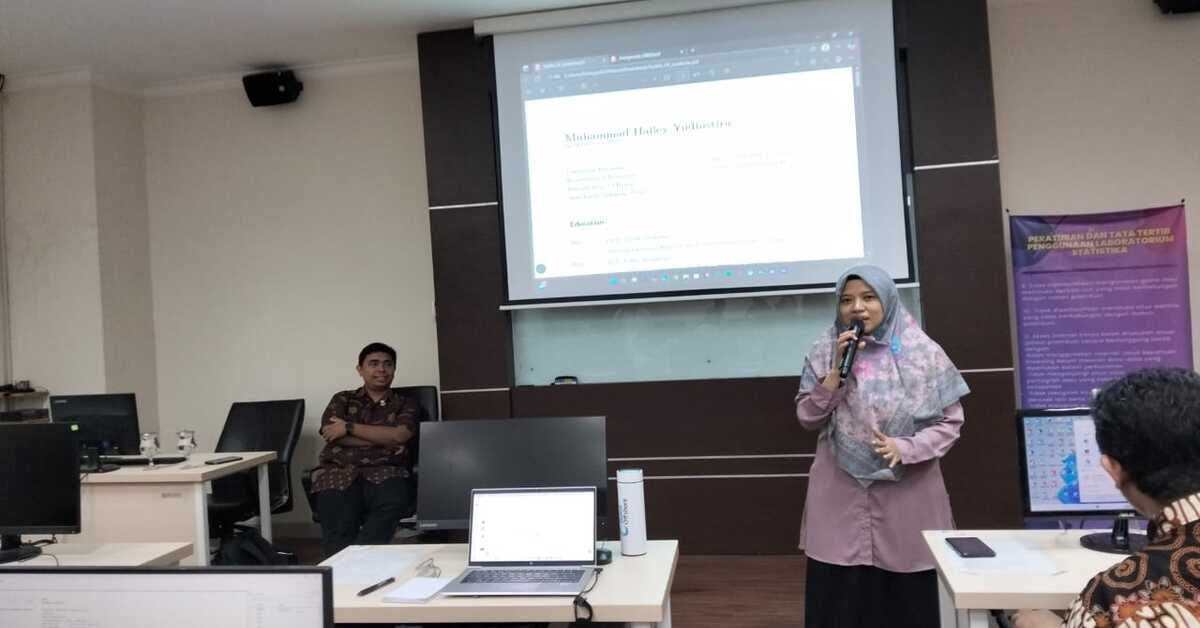Improving Quantitative Analysis in Student Research, Development Economics Study Program Invites UI Lecturers as Visiting Lecturers
Ciputat, October 22, 2025 — The Faculty of Economics and Business (FEB) at UIN Syarif Hidayatullah Jakarta held a Visiting Lecturer event titled “Addressing Endogeneity in Quasi-Experimental Designs: The Instrumental Variables Approach” in the PLP Room on the 3rd floor and the Flat Theater Room on the 5th floor. This event was organized by the Development Economics Study Program in collaboration with the Laboratory and Training Center (PLP). The event was held in a hybrid format, with the main session with the speakers taking place offline in the PLP Room on the 3rd floor, while other participants attended online from the Flat Theater Room on the 5th floor. This format was designed to maximize the participation of students and lecturers so that they could continue to participate in the event interactively.
The event featured guest speaker M. Halley Yudhistira, Ph.D., Head of Urban Economics and Transportation Studies at LPEM FEB University of Indonesia, with Najwa Khairina, M.A. as moderator. The event was officially opened by Vice Dean of Academic Affairs Sofyan Rizal, accompanied by Head of Development Economics Study Program Arief Fitrijanto.
In his presentation, Halley explained the importance of distinguishing between correlation and causality in economic research. He gave an example that the increase in ice cream sales and the increase in shark attacks in the summer are only correlative relationships, not cause and effect. Through this example, participants were invited to understand that modern economic research must focus on causal inference, not just statistical relationships.
Furthermore, Halley explained several approaches to analyzing causal relationships, such as random assignment, which is used to eliminate selection bias. However, because randomized experiments are difficult to conduct, economic research usually uses quasi-experimental approaches, such as Fixed Effect, Difference-in-Differences (DiD), and Instrumental Variables (IV). He emphasized that the IV method is an effective solution to overcome endogeneity problems, provided that the instrument variables are relevant and have no direct relationship with the outcome variables.
The Secretary of the Development Economics Study Program, RR Tini, said that this visiting lecturer activity was intended to strengthen students' analytical skills in completing their final assignments. “This activity is very important, especially for students who are completing their final assignments, so that their quantitative analysis skills become more in-depth and sharp,” said Tini, who is also a lecturer in econometrics.
The event concluded with moderator Najwa Khairina delivering her conclusions, emphasizing that this material is highly relevant in strengthening students' quantitative analysis skills. Through this activity, it is hoped that students and the academic community of FEB UIN Syarif Hidayatullah Jakarta can improve their understanding of evidence-based research methods and be able to apply them in research and the formulation of more effective and accurate economic policies. (AC)


